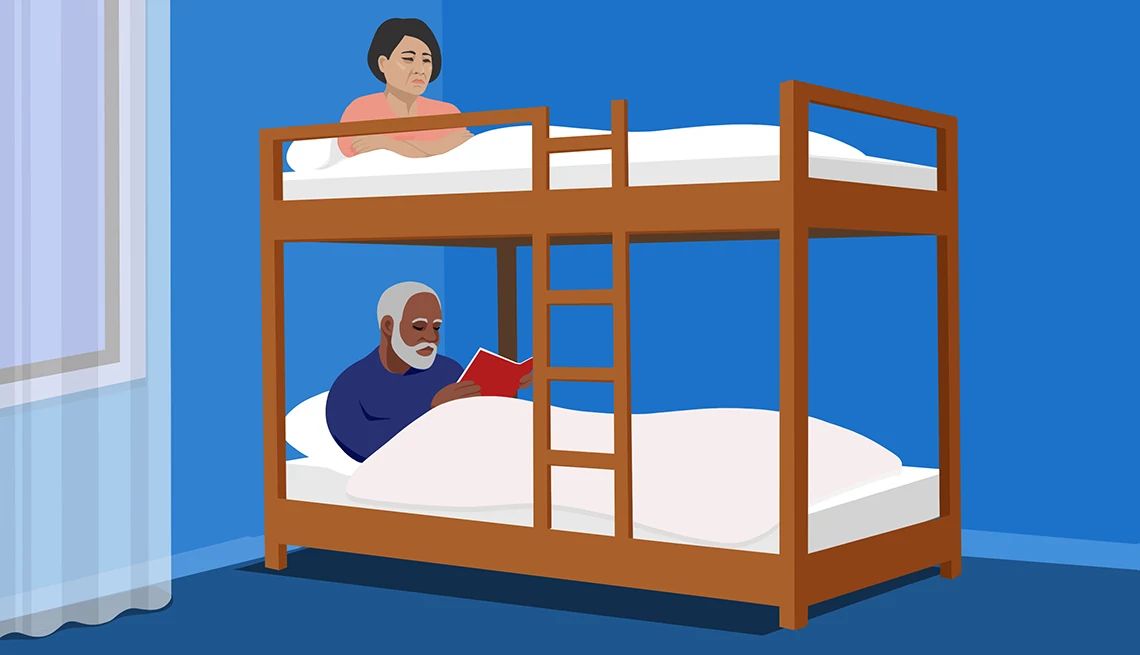AARP Hearing Center


“In the Mood” is no stranger to this topic: a spouse who feels like a roommate, a sex life that’s lost its luster. But this week’s question comes with a twist: a partner who belittles his wife when she tries to talk to him about intimacy. Our sexuality experts offer guidance on how to deal with this difficult dynamic.
My husband and I, both in our 60s, used to have a thriving sex life, but in recent years, I have come to feel nonessential — more like a roommate than a cherished spouse. When I raise the topic, he belittles me and gets super defensive. When we do have sex, it’s all about him and not about me. Thoughts?
What you are describing is not uncommon, but it is deeply painful, says licensed psychologist and certified sex therapist Rachel Needle.
As she puts it: “You deserve to feel cherished, seen and intimately known by your partner, and it’s OK to fight for that kind of connection.”
And here’s something to lean into: Needle says many couples in your situation, through “curiosity, care and mutual effort,” are able to rediscover intimacy in ways that are richer and more connected than ever before.


In the Mood
For AARP’s In the Mood column, writer Ellen Uzelac will ask experts your most pressing 50+ sex and relationship questions. Uzelac is the former West Coast bureau chief for The Baltimore Sun. She writes frequently on sex, relationships, travel and lifestyle issues.
Here are next steps to consider:
First, own your feelings. Your needs and feelings are valid, and it’s important to acknowledge that, says Needle, co-director of Modern Sex Therapy Institutes in West Palm Beach, Florida, a continuing education company that trains couples and sex therapists around the world.
“Emotional and sexual intimacy are vital parts of a fulfilling relationship at any age,” she says, and it’s critical for you to figure out what you are getting out of the relationship — and what you’re not.
Conversation strategies. When one partner becomes defensive or belittling in response to difficult conversations, Needle says it’s often a sign that the communication dynamic itself needs attention.
In those moments, how you approach the conversation is key. Here are some tips:


































































You Might Also Like
What You Need to Know About STIs
Senior centers can be hotbeds of sexual activity
Help! My Husband Is a Serial Cheater
A woman found out her husband has been seeing other women for years. Should she stay?
In The Mood
Writer Ellen Uzelac asks experts your most pressing 50+ sex and relationship questions